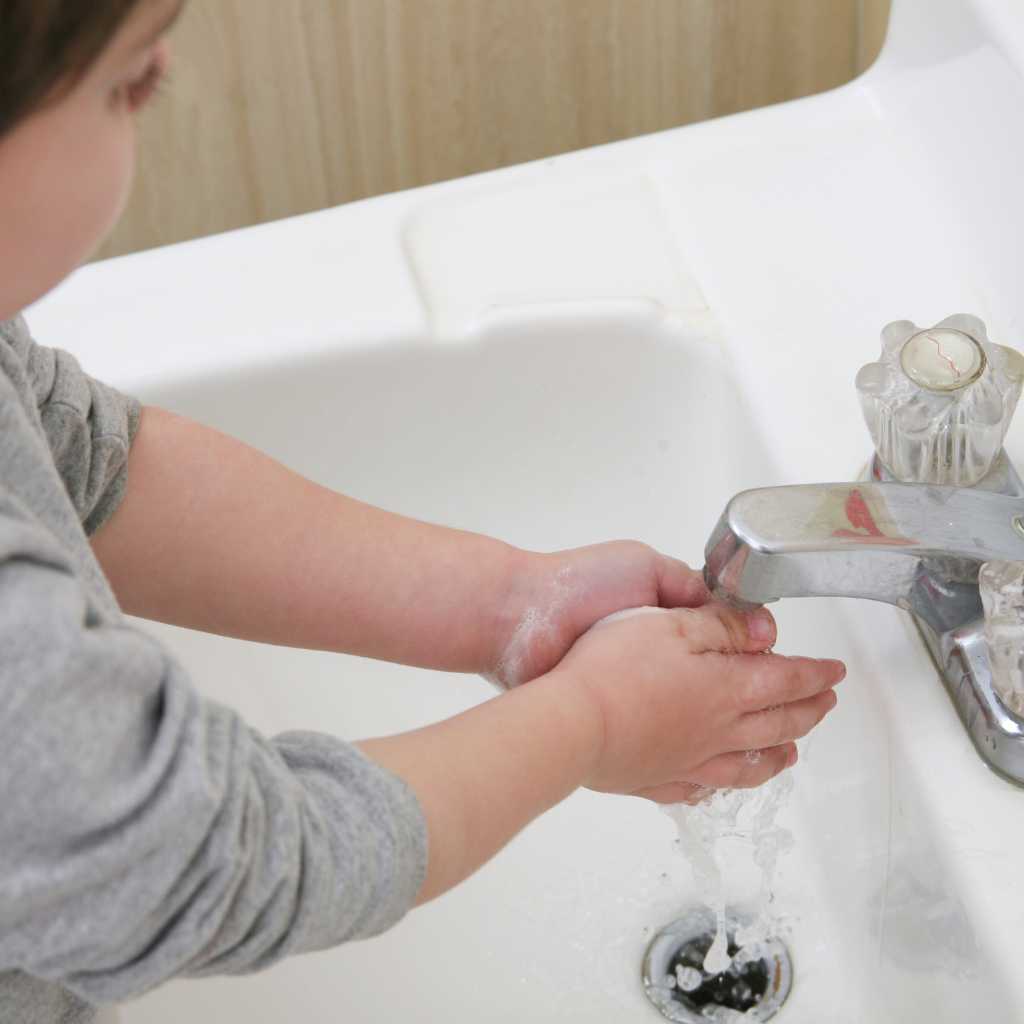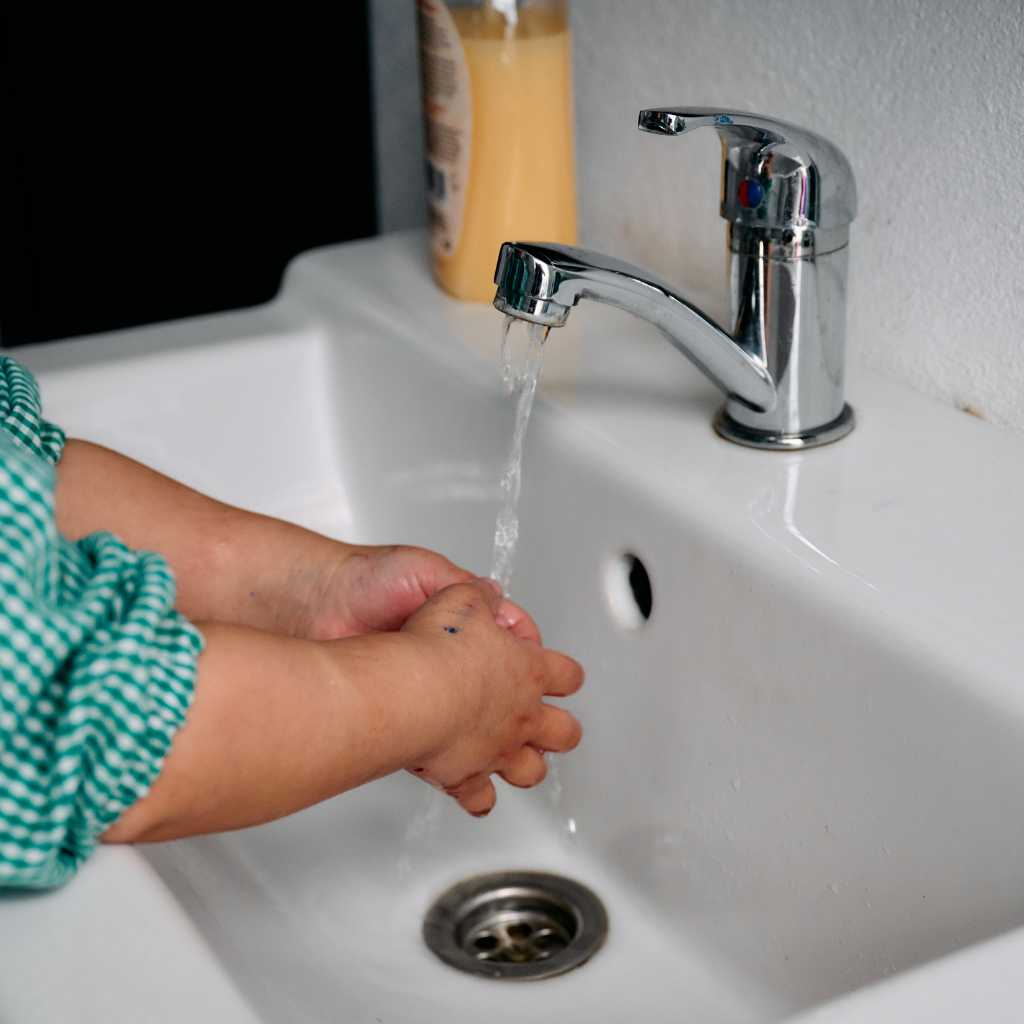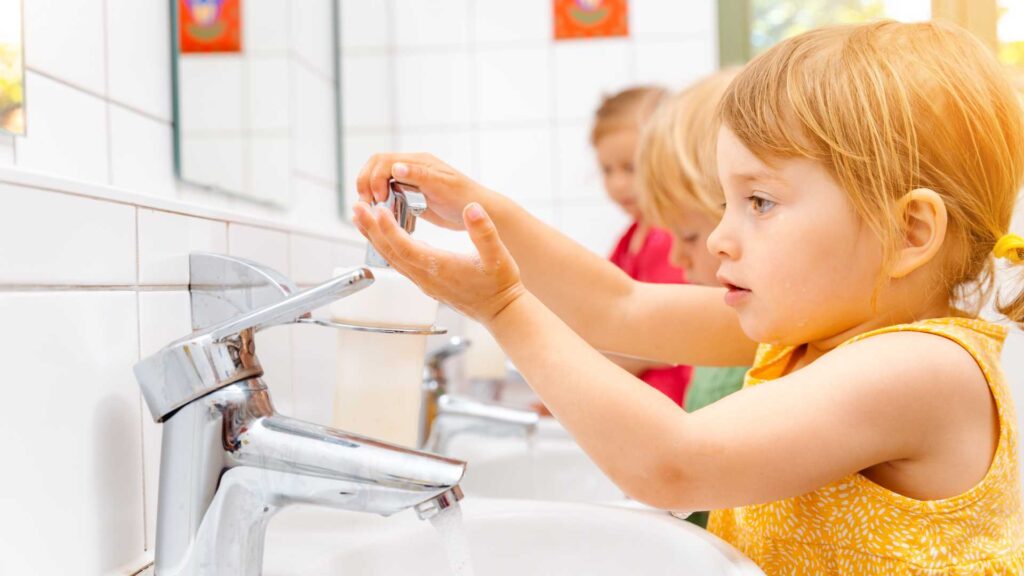Table of Contents
How does autism affect hand hygiene?
Handwashing in autism can pose a significant challenge for children with Autism Spectrum Disorder (ASD). Individuals on the autism spectrum face a range of challenges, including difficulties in social, verbal, and nonverbal communication, repetitive behaviors, limited cognitive flexibility, adaptation to change, motor development, and daily living skills such as handwashing. These challenges can make it even harder for them to navigate everyday life.
How does autism affect hand hygiene? Sensory sensitivities, coordination issues, comprehension difficulties, and deficits in executive functioning are among the factors that complicate the acquisition of hygiene habits in children with autism.
In our increasingly interconnected world, where global pandemics have become a reality, proper hand hygiene is essential to protect both individual health and public well-being. As such, many parents and caregivers are keenly focused on enhancing handwashing practices in autism, aiming to safeguard the health and well-being of their loved ones and the broader community.
In this blog post by ABA Centers of Pennsylvania, we will delve into six techniques designed to assist caregivers in promoting effective handwashing in autism. Furthermore, we will explore how ABA (Applied Behavior Analysis) therapy can serve as an invaluable tool in the process of imparting essential life skills to children on the spectrum. Keep reading for a detailed exploration of the significance of handwashing within the context of autism.
Why is it Crucial to Address Handwashing in Autism?
According to data from the World Journal of Clinical Pediatrics, medical comorbidities are more prevalent in children with autism. More than 80% of children with ASD experience sleep disorders, gastrointestinal disorders, and allergic disorders. The high incidence of these conditions underscores the importance of promoting self-care in children with ASD, and maintaining good hygiene is a critical step in protecting their health.

However, for many, handwashing in the context of autism presents significant challenges. Below, we will explore the difficulties that may arise for children when performing this activity. This exploration will allow us to identify certain external factors and facilitate this process.
Navigating Handwashing Obstacles in Children with Autism
Autism introduces a spectrum of hurdles that can impede the acquisition of fundamental skills, influenced by both internal and external factors. When focusing on handwashing, several common challenges emerge:
- Sensory Sensitivities: Autism Speaks notes that individuals on the autism spectrum often grapple with sensory issues, experiencing stimuli in unique ways. This variance in sensitivity can profoundly affect handwashing, as the feeling of water, the temperature, the sensation of soap, and the texture of towels might provoke negative responses due to either hypersensitivity or hyposensitivity.
- Transition Difficulties: For those with ASD, adjusting from one activity to another or coping with routine changes can be particularly challenging. Introducing handwashing as a new routine necessitates a level of predictability often essential for children with autism. Research from Indiana University Bloomington highlights that such difficulties might hinder independence and complicate interactions within community settings. The interruption of ongoing handwashing activities can thus elicit resistance or discomfort.
- Executive Functioning Challenges: Beyond interaction, communication, and repetitive behavior issues, individuals with ASD may struggle with executive functions. These are higher cognitive processes critical for goal-oriented actions, including planning, impulse control, and task initiation. Frontiers in Psychiatry research points out that people with ASD often show reduced executive function capabilities, making the sequential steps involved in handwashing daunting.
- Communication Hurdles: Verbal communication challenges can further complicate the ability to follow handwashing instructions, impacting how parents and caregivers can convey the importance and techniques of this hygiene practice.
- Social Interaction Difficulties: Since handwashing can involve social elements, such as seeking assistance or encountering others in restrooms, children with autism might find these situations stressful due to difficulties with social communication and eye contact.
Addressing these barriers requires understanding and tailored strategies to support handwashing in autism, an essential skill for their health and independence.
6 Techniques for Autism-Friendly Handwashing

Handwashing in autism may present complex challenges, yet caregivers can employ various strategies to streamline the process:
1. Break Handwashing into Simple Steps:
For individuals with autism, learning through incremental steps can be more effective than attempting a task in its entirety. Simplifying handwashing in autism into manageable steps allows your child to focus on mastering one aspect at a time, mitigating frustration. For instance, caregivers can break down handwashing as follows:
- Turn on the faucet
- Wet hands
- Apply soap to hands
- Rub hands together, covering all surfaces
- Rinse off the soap
- Turn off the faucet
- Dry hands with a towel

2. Create a Visual Schedule
Visual aids can graphically outline the steps of handwashing, aiding comprehension for your child. Placing these aids by the sink can remind them of the sequence each time they use the bathroom. The National Autism Association provides examples of visual schedules for handwashing in autism.
3. Choose Sensory-Friendly Handwashing Supplies:
Your child’s sensory sensitivities, whether hypersensitive or hyposensitive, could make handwashing difficult for them. Identifying and using sensory-friendly products, such as non-foaming soap and soft towels, and ensuring a comfortable water temperature can make this process more comfortable for your child.
4. Gradually Integrate Handwashing into Daily Routines:
Incorporating handwashing in autism into your child’s routine gradually can ease the adjustment to changes and transitions. Establishing this practice at critical times—like after arriving home, before meals, and post-toilet use—can foster habit formation.
5. Utilize Social Stories:
Understanding the rationale behind activities can be challenging for children with autism. In the context of handwashing for children with autism, social stories can elucidate the significance of this practice in maintaining personal and public health. Craft stories that highlight the benefits of handwashing, incorporating examples and engaging elements.
6. Reinforce Positive Behavior:
Positive reinforcement is a valuable tool for encouraging positive behaviors in children and teenagers with autism. Commend your child each time they successfully wash their hands, possibly rewarding them with a small toy or snack to reinforce the behavior.
By adopting these autism-friendly handwashing techniques, parents and caregivers can facilitate a more positive and effective hand hygiene routine for their children with autism.
The Power of ABA Therapy in Teaching Handwashing to Children with Autism
ABA therapy, a scientifically supported therapeutic approach, has been instrumental in teaching essential skills to children with ASD for over four decades. Utilizing the principles of ABA, therapists foster their clients’ development and independence, focusing on areas where children with ASD may require additional support, such as handwashing in autism. ABA therapy employs a variety of techniques to meet the needs of each individual on the spectrum, including:
- Modeling and Imitation: ABA therapists demonstrate handwashing actions, encouraging children to replicate these behaviors. Observation and imitation are powerful learning tools for children with ASD. Enhancing this process with visual and verbal cues can further improve their understanding and execution.
- Strengthening Social Skills: A key benefit of ABA therapy is its focus on enhancing social and communication abilities. Therapists facilitate social integration during handwashing routines by organizing group activities. This approach allows children to learn from observing and imitating their peers, fostering interaction and cooperation.
- Positive Reinforcement: Employing positive reinforcement is a cornerstone technique of ABA therapy. Therapists use motivational incentives to encourage consistent engagement in healthy behaviors, aiming to extend these practices beyond the therapeutic environment.
- Play Therapy: Recognizing play as essential to a child’s development, ABA therapists incorporate playful elements into learning sessions. For example, in the context of handwashing in autism, therapists can make the routine more appealing by adding rhymes, creating scenarios, or involving toys, effectively turning handwashing into an enjoyable activity.
While these are some of the strategies employed by ABA professionals, patience, creativity, and a deep understanding of the specific challenges associated with handwashing in autism are crucial for successfully imparting this skill. Through personalized ABA therapy, children with ASD can develop not only hygiene skills but also other areas of challenge as therapists customize each program to meet the individual needs and goals of the client.
ABA Centers of Pennsylvania: Enhancing Lives with ABA Therapy
Ensuring that children with autism develop proper handwashing habits is crucial for their health and autonomy. Although mastering this skill may demand additional guidance, the insights shared in our blog combined with ABA therapy can empower children to learn and surmount any obstacles they encounter.
At ABA Centers of Pennsylvania, we understand the transformative impact ABA therapy can have on enhancing the overall quality of life for children with autism and their families. We are proud to offer our in-home ABA therapy services to families throughout King of Prussia and Philadelphia. Regardless of the challenges you face as you explore neurodiversity with your loved one, our team provides support. You can contact us at (844) 444-7496 or via our online contact form. While autism presents its unique set of challenges, ABA therapy remains a profoundly effective method to foster significant developmental progress in children and teens with autism.









